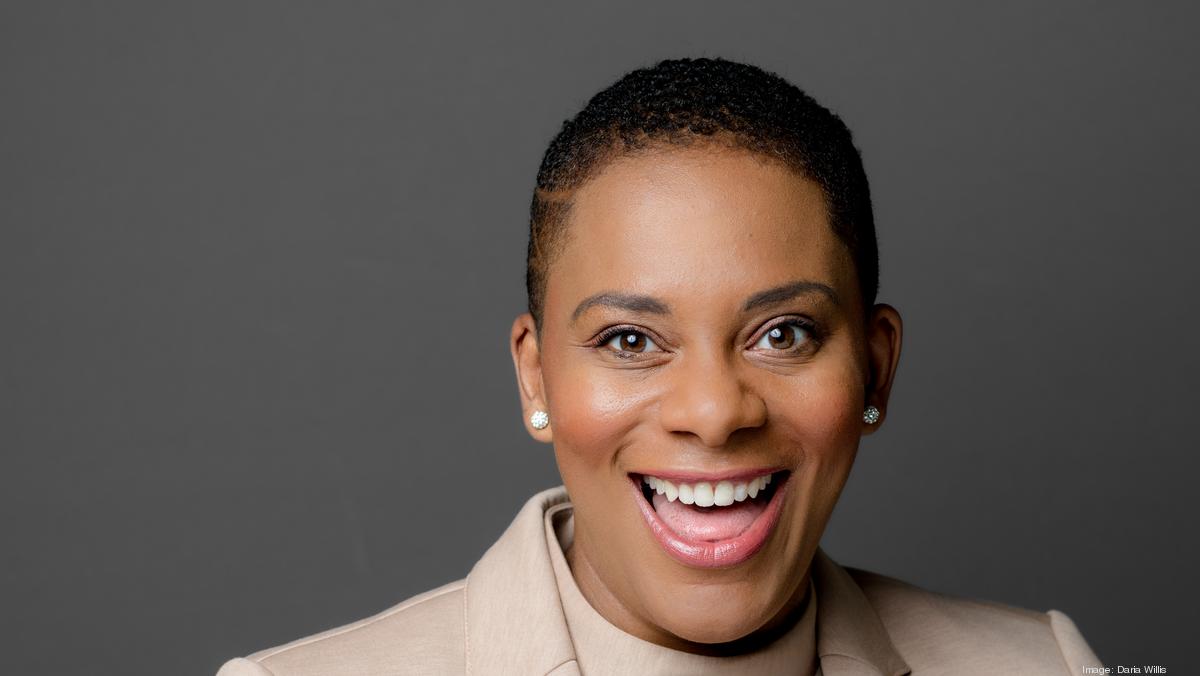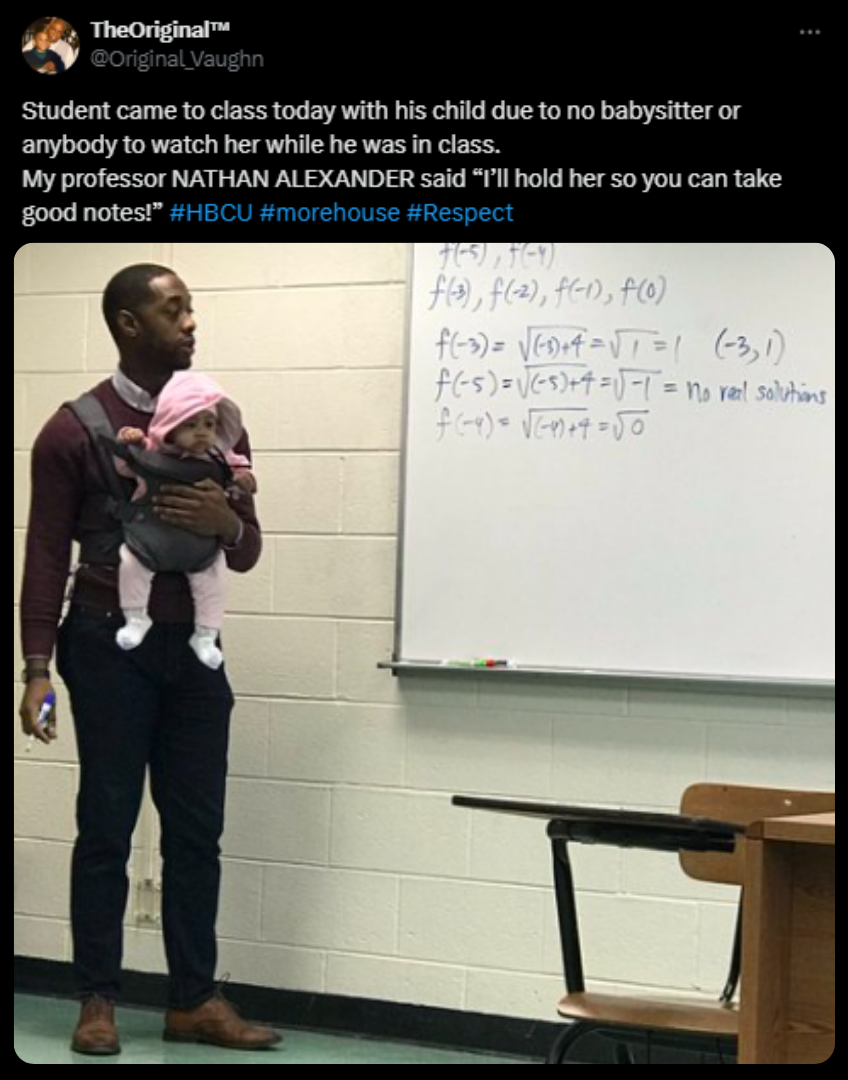👋 Though a college degree can pay off in higher earnings and less likelihood of being unemployed, many would-be students who also are parents find that education to be unattainable.
As if being a parent weren’t complicated enough, adding college to the mix can be a huge hurdle in a higher education system designed for single 18-24-year-olds. Class schedules, tuition and fees, and lack of study spaces and child care can be a deal breaker.
Recognizing the value of a college education to families and the community, many 2-year colleges are making changes to accommodate student-parents.
This issue explores ways to make college more welcoming for student-parents and includes an interview with Daria Willis, president of Howard Community College in Maryland, who shares her journey from student-parent to college president. I was deeply moved by this inspiring short film presented by Ascend at the Aspen Institute featuring Dr. Willis’s innovative efforts to support student-parents at her campus, efforts that could serve as a model for other states and the nation. 🌟
Atiya Weiss
Executive Director, the Burke Foundation
1 big thing: Higher education changes lives

Why it matters: Post-high school degrees can drive generational improvements in wealth and health.
Higher education improves families’ economic well-being. And many parents are trying to make it work for them: Nearly a quarter of undergraduates are also parents – about half with kids under 6. Most of them are mothers, usually single, and frequently Black.
The statistics tell a compelling story:
People without any college degree are 3 times more likely to live in poverty.
An associate degree increases workers’ earnings by about $8,000 a year.
As of October 2024, the unemployment rate for those older than 25 with bachelor’s degrees was 2.5%, while 4% of those with only a high school diploma in that age range were unemployed.
Despite the hardships they endure, a third of student-parents in college have a grade point average of 3.5 or higher.
Completion is key: To realize the benefits of higher education, a student must walk away with a technical credential, associate or bachelor’s degree, or beyond.
Here, too, student-parents struggle: About a third of all college students leave with no degree; for students with children, the rate soars to more than half.
And since most students spend thousands of dollars per semester or incur thousands in debt, non-completion can leave students even farther behind financially than if they never started college. The average student debt load is about $2,500, but it’s $6,500 for student-parents.
Easing the path for student-parents: Community colleges — usually, state-subsidized institutions serving their local area — confer technical certificates and associate degrees and prepare many students for a 4-year college.
And they’re on the cutting edge of making it easier for some of their most important constituents: student-parents. Schools across the country, including Maryland’s Howard Community College and Santa Fe Community College in New Mexico are adding or enhancing child care facilities and dedicated spaces where children and parents can spend study time together. Santa Fe also offers 1-on-1 mentoring and coaching and customized classes for student-parents.
Others are restructuring curricula to offer shorter, more intensive courses that can be completed in weeks rather than months.
Child care support is essential: It’s no surprise that child care is a formidable obstacle for student-parents — just as it is for working parents. And many student-parents work part or full time, too. They often take classes in the evening — when already limited child care options are even more scarce, especially in the wake of the COVID pandemic that caused thousands of child care facilities to close.
Student-parents often rely on a patchwork of family, neighbors, or friends — a precarious support system at best. Many of them end up missing class or even bringing their child to class.
Bottom line: Higher education leads to greater economic mobility, but it can be a challenge for parents.
2. Learning and parenting: Daria Willis on the need for a focus on student-parents
 As President of Maryland’s Howard Community College, Daria Willis, PhD, is a passionate advocate for supporting the school’s many student-parents. She sees this segment of her student body as critical to the school’s success. And — as a student-parent who earned a doctorate and became a college president — she has a unique and inspiring perspective on the challenges they face. Following is a condensed version of our conversation. Click here for the full interview.
As President of Maryland’s Howard Community College, Daria Willis, PhD, is a passionate advocate for supporting the school’s many student-parents. She sees this segment of her student body as critical to the school’s success. And — as a student-parent who earned a doctorate and became a college president — she has a unique and inspiring perspective on the challenges they face. Following is a condensed version of our conversation. Click here for the full interview.
Tell us a bit about your experience as a student-parent when you were in college?
I became a student-parent when I was a student at Florida A&M University. I‘d been a smart high school student with a high GPA. Then when I got to college, I thought, “I’m finally away from home, so I can party like everybody else does.” I partied a little too hard and went from being on the presidential scholars list to academic probation.
Next thing I knew, I was pregnant. Then I had my daughter and got married. I remember saying to my daughter when she was just a tiny infant that I didn’t want her to look at me one day and think I was nothing. She was really the impetus for me to get my act together and do better in school.
So, with incredible support from my mother, I caught up in school, got my grades back up, and graduated in 3 years with a bachelor’s degree in history, magna cum laude.
I went back to FAMU and got my master’s degree, then a PhD in history at Florida State. I taught on 2 college campuses in Texas then landed in Syracuse, New York, for 3 years as provost and senior vice president for academic affairs at Onondaga Community College. I moved to Washington State right before the pandemic and became president of Everett Community College and then, in 2022, became president of Howard Community College in Columbia, Maryland.
Over this entire time, I had my child with me. She moved across the country with me and has done everything with me.
When did you start thinking about how a college can best support student-parents?
At Everett I really started thinking about the impact of being a student-parent and how, when you’re a college president, you’re the decision maker and can effect change. I’ve tried my best to make sure our student-parents have what I lacked when I was in college, where I was largely invisible.
At Everett, there were things we were able to accomplish for student-parents. We installed a lactation pod on campus. We put in baby changing tables in all restrooms on campus, all gender. We even added a children’s section in the new library.
Did I ever think when I was a student-parent I’d be president of a college one day trying to give back to other student-parents and other students who have challenges? Absolutely not. But I’m grateful to be in this position.
What are the main challenges student-parents face?
One major challenge is time. When student-parents have to pick up their children from day care, make food for them, or sit and do homework with them, these college students don’t always have enough time to focus on their own studies.
Another issue is stigma. Student-parents don’t want to tell people they’re a parent. One, they don’t want the “Scarlet Letter” look from fellow students or professors. Two, they don’t want anyone to take pity on them.
Finances are also a challenge. Student parents have to keep the lights on in their homes and pay bills. They have to work. We had a student-parent whose day care cost went up $20 a week. She couldn’t afford it and had to bring her child to class. The professor said, “You can’t have that kid in this class because of the college’s policies.”
When I was interviewing for my job at Everett, my youngest was about 6 months. I had to tell a staff person I needed a break in the middle of this long interview schedule to nurse. If that was hard for me as a presidential candidate, what is it like for a student that has a full day’s worth of classes and doesn’t have the time and the necessary sanitary space to nurse?
What kinds of support does Howard Community College provide to student-parents?
We have a Children’s Learning Center with a capacity of approximately 80 children. Thirty to 40% of the child care slots are set aside for student-parents at HCC, who get free tuition for their kids. We also opened a student-parent study room in our library. We learned from a survey that the 2 programs the college offers that students consider the most supportive are a calculator loan program for math classes and the student-parent study room.
One of the services I’ve seen at other schools is a family wellness center, which is something we’re trying to build. Our plan is to gut a floor in our Student Services building and make it a one-stop shop for all students, including having a family wellness room. If you need diapers, wipes, formula, or clothing, those will be there for you.
Lastly, we’re working on identifying courses where professors are student-parent friendly. We hope that as we start training faculty who want to be more inclusive, it’ll trickle down to other faculty across the college and eventually being student-parent friendly will happen naturally across the institution.
From a curricular standpoint, our top 20 courses are now in a 7-week format. The goal is to get students out quicker because student parents don’t have time to take all 15-week classes. Data show that when you offer sessions in a truncated period of time, it helps students cycle through their education at a faster rate. We want to help student-parents get in, get out, and get on with their lives.
1 smile to go: Student-dads need support too! 💖
 A viral moment at Atlanta’s Morehouse College brought home the plight of student-parents when a professor strapped a student’s baby to his own chest during a class so the student could focus on learning. The nation’s only historically Black, 4-year liberal-arts college for men, Morehouse has since launched “Fathers to the Finish Line” — an initiative to help student-fathers complete their degrees, recognizing that Black fathers drop out at the highest rates of any other student-parent group.
A viral moment at Atlanta’s Morehouse College brought home the plight of student-parents when a professor strapped a student’s baby to his own chest during a class so the student could focus on learning. The nation’s only historically Black, 4-year liberal-arts college for men, Morehouse has since launched “Fathers to the Finish Line” — an initiative to help student-fathers complete their degrees, recognizing that Black fathers drop out at the highest rates of any other student-parent group.
The roundup
- Investing in the future: MD Governor Wes Moore debuted a historic statewide cybersecurity training initiative at Howard Community College, announcing $18 million to boost cybersecurity programs at all Maryland community colleges. This funding will equip schools with top-notch training tools and prepare students for high-demand tech jobs.
- Listening to student-parents: Check out Ascend at the Aspen Institute’s 1-in-5 podcast focused on the stories of student-parents.
- Continuing the conversation: The Aspen Institute also has a wide variety of resources related to student-parents, including a playbook for post-secondary leaders and a guide to mental health challenges student-parents face.
- Building a foundation: New Jersey’s Maternal-Infant Health Innovation Authority is hiring for several roles.
- Strengthening the team: Our partners at New Jersey Health Care Institute seek 2 program officers to work on health policy and the quality team.
- Forging ahead: Reshma Saujani, founder of Girls Who Code and Moms First has a new podcast, “My So-Called Midlife” in conversation with women leaders such as Supreme Court Justice Ketanji Brown Jackson, actress Julia Louis-Dreyfus, and economist Dr. Emily Oster. The Burke Foundation is proud to support Moms First in advocating for child care and paid family leave.
